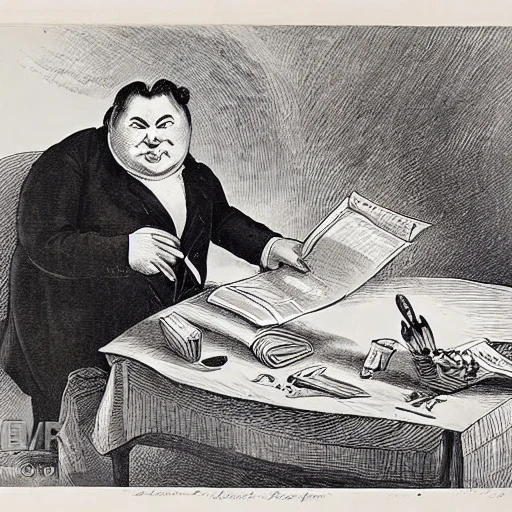- 21
- 115
Lol of course.
— Michael Lane (@mlanetrain) May 5, 2024
The country with the freest press? The one that gives me tax breaks. https://t.co/OIVM1q2D0N pic.twitter.com/9oRyhysNPB
https://twitter.com/SwannMarcus89/status/1787184386795770303
- 4
- 32
- 2
- 14
Frankly, good journalism is asking questions when you don't fully understand the ins and outs of a program. The dashboard costs around $5k. Total data collection request = $567,882. Neither anywhere close to $577 million. @FranklyFlorida pic.twitter.com/nhUqsWgHdc
— Alecia C. (@AleciaDCollins) April 3, 2024
how would  that even be possible lol
that even be possible lol
- 59
- 75
Candace, if you feel that taking money from The Daily Wire somehow comes between you and God, by all means quit. https://t.co/qachKhAuHo
— Ben Shapiro (@benshapiro) November 15, 2023
- 4
- 15
Here is the link if you feel like giving them clicks 
Thank god we have these articles. I can't wait for the next article where they interview some Urologists to teach me how to bust a nut 
- 2
- 9
Ukrainian President Zelensky said he does not want Tucker to interview Putin. 😄 pic.twitter.com/hOP3FMM37r
— S p r i n t e r (@Sprinter99800) February 5, 2024
- 4
- 33
Academics: This is the automated refusal engine we've all dreamed of. https://t.co/mPWL5o3IYI pic.twitter.com/tJIkjaPJrW
— Melanie Mitchell (@MelMitchell1) February 9, 2024
- 73
- 58
It just didn't happen.
— Chris Cillizza (@ChrisCillizza) January 24, 2024
And, again, no journalist said "learn to code." And neither did Biden. https://t.co/Tkd6lpvEnt
- 2
- 14
New pastime: replace "AI" with "word synthesizer" in doom articles pic.twitter.com/mPJggKm9kX
— james yu (@jamesjyu) November 15, 2023
- 44
- 78
this is on the NYT front page today pic.twitter.com/xzD4YElUNn
— normality (@getnormality) January 23, 2024
- TheOverSeether : better thread here - https://rdrama.net/post/232600/fact-checkers-about-to-fedpost-that
- 11
- 26
Bussy Singal's response: https://jessesingal.substack.com/p/why-would-i-possibly-trust-bill-adair
Fact-checking is failing.
The old way of publishing fact-checks --- putting them on websites and promoting them through social media --- isn't getting them to the people who need them. It's time to reimagine how fact-checkers publish and broadcast their work.
For two decades, fact-checking organizations relied on a dependable model: They published articles on websites. They also tried a variety of other ways to spread the facts --- tweets and TikToks and podcasts and even TV segments. But for the most part, the main way they published their work was on the web.
It worked --- sort of. Fact-checking became a Thing, foundations kicked in money, and some politicians (um, mostly Democrats) became more cautious about what they said and did.
But now, 20 years later, there are big gaps. A study of 2022 coverage by my colleagues in the Duke Reporters' Lab found there are still giant "fact deserts" with little or no political fact-checking. Half the states had no fact-checking organization and, in those that did, the odds of a politician being checked were tiny. State legislators (there are more than 7,000 in the United States) were checked only 77 times.
Another problem is that fact-checks aren't reaching the people who need them the most. Although this hasn't been studied as directly as the location of fact-checkers, it's pretty clear from the research that Republicans distrust political fact-checking.
In the coming year, I predict (okay, I hope) that fact-checkers will reassess their goals and reimagine how they publish their work. It's time to get rid of our old approach and 2024, an election year, is an ideal time.
After I founded PolitiFact in 2007, I often said that our goal wasn't to change people's minds or get politicians to stop lying --- it was simply to inform democracy. In the last few years, I've changed my mind. "Informing democracy" is not enough in an age of rampant lies about elections and public health and climate. Fact-checkers need to be more assertive in getting truthful information to the audience that needs it.
In 2024, they will dream up new ways of getting the facts to the people who need them. Fact-checkers will be bold and think more like marketers trying to push content rather than publishers waiting for the audience to come to a website. They will experiment with new forms that target the people who are misinformed and push the content directly to them.
Another way they will innovate: They'll get tech companies and social media platforms to expand the use of fact-checking data to suppress misinformation. My Duke team helped develop ClaimReview, a tagging system used by most of the world's fact-checkers. Tech companies such as Google use it to identify fact-checks and highlight them in search results and news summaries. But this is just a start. ClaimReview and MediaReview, a sibling tagging system for fact-checks of videos and images, can be used more widely to suppress inaccurate content.
I'm also encouraged about the big infusion of money and energy that will come from Press Forward, the ambitious new venture to fund local journ*lism. The early signs indicate it will be built around regional partnerships, which bodes well for an expansion of fact-checking. I expect the local leaders will make fact-checking a key component of their funding.
I'm not embarrassed to say fact-checking needs a reboot. It's had a great run for the past two decades, but it's time for a fresh approach. I'm hopeful it will get one in 2024.
- 10
- 18
From @WSJopinion: Taylor Swift brings joy, jobs and happy feet everywhere she goes. She’s the best thing happening in America, writes @Peggynoonannyc. https://t.co/FkFzGsz1Ii
— The Wall Street Journal (@WSJ) November 25, 2023
- 5
- 16
- 9
- 28
...
I've thought a lot about that advice in the past year. A report that tracked layoffs in the industry in 2023 recorded twenty-six hundred and eighty-one in broadcast, print, and digital news media. NBC News, Vox Media, Vice News, Business Insider, Spotify, theSkimm, FiveThirtyEight, The Athletic, and Condé Nast—the publisher of The New Yorker—all made significant layoffs. BuzzFeed News closed, as did Gawker. The Washington Post, which lost about a hundred million dollars last year, offered buyouts to two hundred and forty employees. In just the first month of 2024, Condé Nast laid off a significant number of Pitchfork's staff and folded the outlet into GQ; the Los Angeles Times laid off at least a hundred and fifteen workers (their union called it “the big one”); Time cut fifteen per cent of its union-represented editorial staff; the Wall Street Journal slashed positions at its D.C. bureau; and Sports Illustrated, which had been weathering a scandal for publishing A.I.-generated stories, laid off much of its staff as well. One journ*list recently cancelled a networking phone call with me, writing, “I've decided to officially take my career in a different direction.” There wasn't much I could say to counter that conclusion; it was perfectly logical.
“Publishers, brace yourselves—it's going to be a wild ride,” Matthew Goldstein, a media consultant, wrote in a January newsletter. “I see a potential extinction-level event in the future.” Some of the forces cited by Goldstein were already well known: consumers are burned out by the news, and social-media sites have moved away from promoting news articles. But Goldstein also pointed to Google's rollout of A.I.-integrated search, which answers user queries within the Google interface, rather than referring them to outside Web sites, as a major factor in this coming extinction. According to a recent Wall Street Journal analysis, Google generates close to forty per cent of traffic across digital media. Brands with strong home-page traffic will likely be less affected, Goldstein wrote—places like Yahoo, the Wall Street Journal, the New York Times, the Daily Mail, CNN, the Washington Post, and Fox News. But Web sites that aren't as frequently typed into browsers need to “contemplate drastic measures, possibly halving their brand portfolios.”
...

- 5
- 32
I wonder what they’d do if a white Republican intentionally mispronounced Donna’s name & then told her to return “home.” 😂 https://t.co/UIfiSCU6p6
— Vivek Ramaswamy (@VivekGRamaswamy) November 19, 2023




















 to own the Santis that he published an article claiming that florida's illegal
to own the Santis that he published an article claiming that florida's illegal  immigrant hospital
immigrant hospital  theft
theft  dashboard costs $577 million
dashboard costs $577 million 







 vs
vs 





 House boomer
House boomer  | Discordmisic
| Discordmisic 
 |
|
 bring in the heckin' experts
bring in the heckin' experts  to tech you the obscure science of --
to tech you the obscure science of --  -- petting dogs
-- petting dogs 


























 causes the
causes the 


